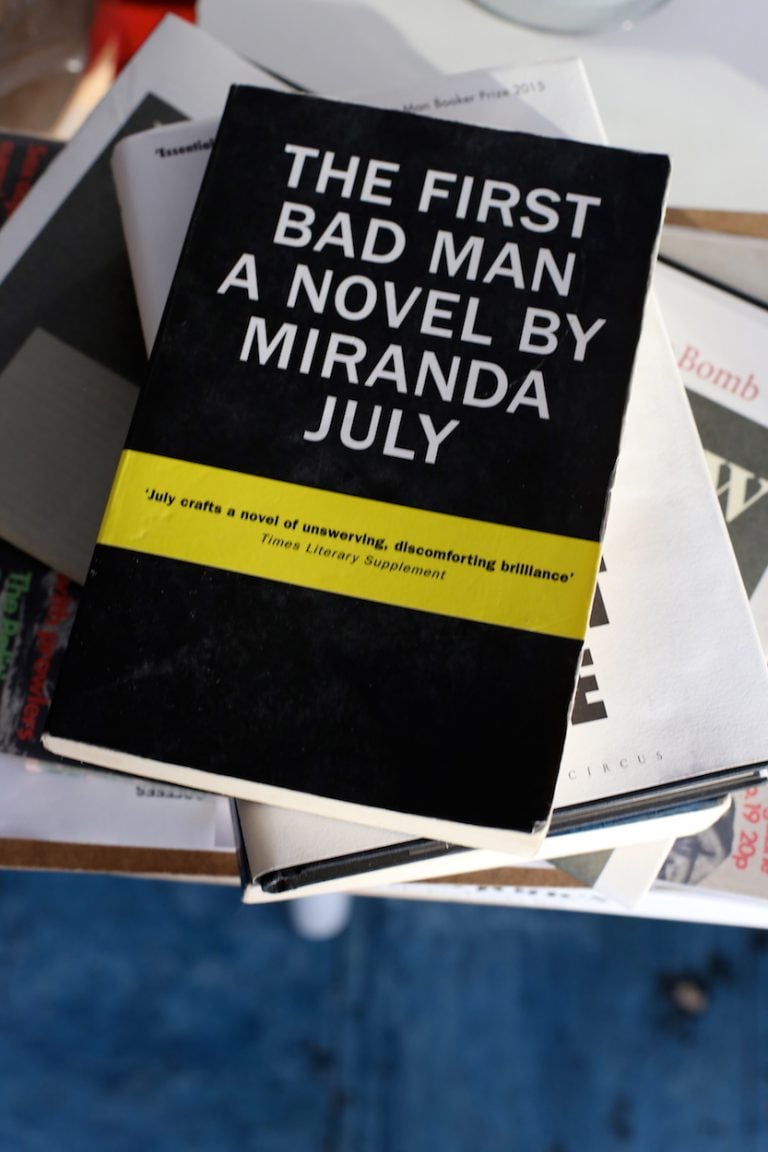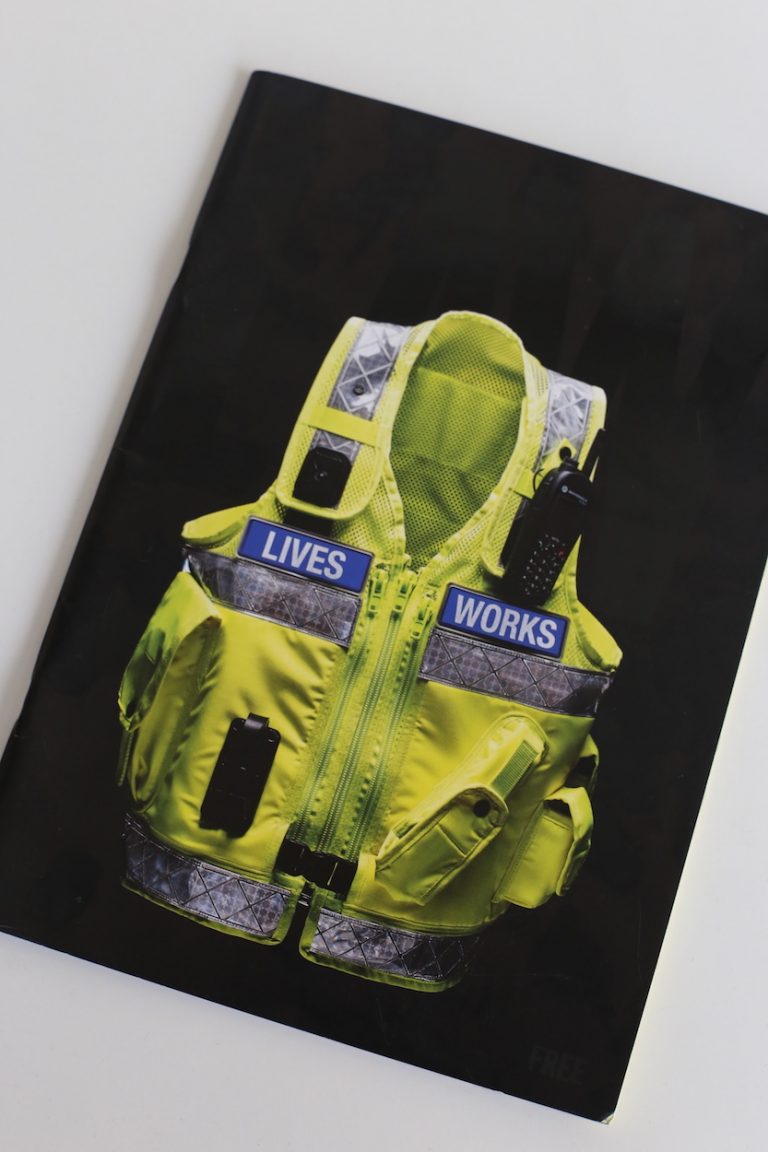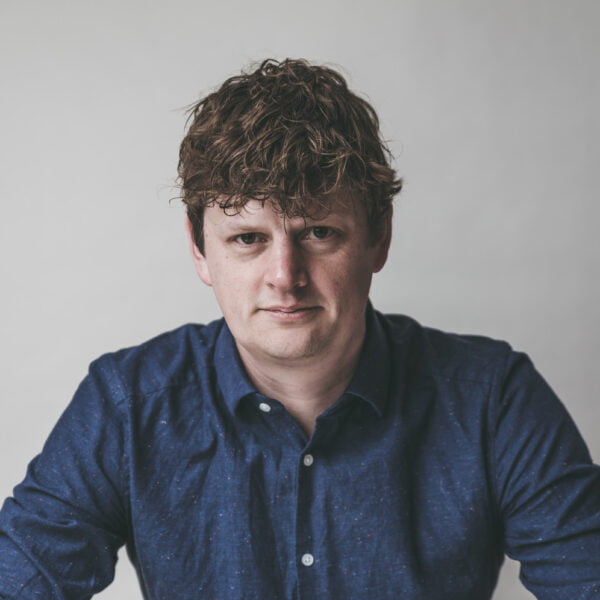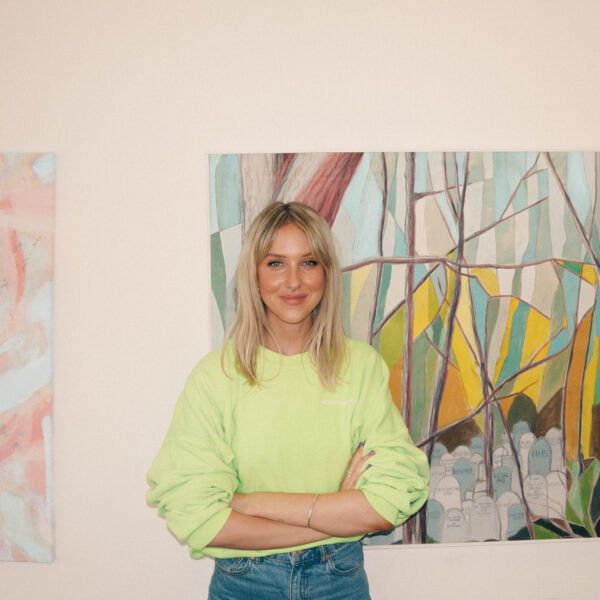
Natasha Collie
Senior Brand Marketing Manager at Penguin Random House UK
At the start of the year, Ladybird Books approached Sonder & Tell with a dream brief. In 2021, a year that’s been particularly challenging for...
In conversation with
Journalist, broadcaster, author Tenants

We’re used to journalists getting behind causes, but few have dedicated themselves to exposing injustice as fiercely as Vicky Spratt. As Deputy Editor at The Debrief, Vicky made it her mission to give voice to issues she cared about. Her campaigns included Make Renting Fair which succeeded in getting letting fees banned in England and Mad About the Pill, which explored the under-reported links between contraception and mental health.
The Debrief closed just last month (RIP) and the news came as a shock. But the legacy of the platform as a trailblazer for women’s issues and of Vicky as a campaigner lives on. Having becoming something of a spokesperson for Generation Rent, Vicky is now working on her first book, Tenants: Secrets of Britain’s Housing Shame. Her research is seeing her interview people from all walks of life who’ve been affected as the British dream of homeownership has broken down. “The best part is undoubtedly the total privilege of listening to people as they share their stories with me so that I, in turn, can share them with an audience,” says Vicky, “I think that’s the best part of being a writer/journalist full stop”.
It wasn’t something I knew at school. For my parents that was never going to be something that was possible. Neither of them went to university, and they would have really liked to me a doctor or lawyer – something that was stable with obvious social progression. But I always knew I really liked writing, storytelling and reading.
I worked for the BBC as a political and broadcast journalist. I worked on Daily Politics, Newsnight, The World at One, PM and The World Tonight. I made Radio 4 documentaries and presented a few of them. I was always freelance, never on a contract because I love variety. But when The Debrief job came up it was the perfect fit. It was such an exciting, new platform and a chance to do the type of things I was battling to do at the BBC and being told “no one cares about that.”
I think I was always interested in it because I didn’t understand it. That’s why I became a political journalist. Because I was annoyed that I didn’t understand politics. And the only people I saw talking about it on TV were men.

I think Laura Kuenssberg is really great and everyone gives her such a hard time for being “a Tory”. I don’t really think she is, she’s just being fair. Corbyn is such an interesting phenomenon and politician – people are sometimes clouded by that and don’t criticise him. I think he’s great – I’m drinking the kool aid as much as the next person – but that doesn’t mean we shouldn’t scrutinise him. Emily Maitlis at Newsnight is an incredible presenter and interviewer and I think she gets way less attention than she should for the work she does. A really good friend of mine is the Senior Political reporter for The Telegraph called Kate McCann. She’s so smart and great at what she does.
It depends on your audience. From what I saw at The Debrief, they key is to take something which is affecting people’s lives like Brexit – which, let’s face it, is so complicated – and write a piece which is really clear and explain what it means. There is so much news now and things are changing so quickly that it can be really overwhelming.
“Because we are all a sum of our experiences, we will all bring something different to journalism and reporting. That’s why it’s so important to have diversity.”
Depends on the story and the writer. There are so many male writers who are great and sensitive. We didn’t have many on The Debrief and I’m okay with that. There are plenty of other places for them to write. Sometimes we did; for our sex content Gareth May is a really great sex and relationships journalist. I commissioned a man once to write about male depression and suicide rates and it’s interesting to read it from the perspective of a guy. Because we are all a sum of our experiences, we will all bring something different to journalism and reporting. That’s why it’s so important to have diversity.
Mostly with panic and fear, wondering how I’m going to have the time to do it. At school teachers would always say “Vicky can you show the class your essay plan?” and I’d think: A. Don’t draw attention to me because I’m really nervous; B. I don’t have a plan. When I plan I get very stressed. When it comes to journalism it’s important to do the interview first – to meet someone and see what they have to say. You often know what you want to get to make it an interesting piece or headline but you don’t necessarily know exactly what you’re going to get. Don’t try build a house with no bricks. If you go with an agenda then you don’t pay attention to what someone is saying. Be open and attentive.


My starting point with big, complicated socio-political stories is always immersive interviewing. I’m going to be travelling around the country spending extended periods of time with people from all walks of life, talking to them about how the housing crisis impacts them in real terms, every single day. I hope to act as a sort of invisible narrator or guide, taking the reader into places they would otherwise never reach in the most detailed possible way.
The best part is undoubtedly the total privilege of listening to people as they share their stories with me so that I, in turn, can share them with an audience. I think that’s the best part of being a writer/journalist full stop. I do a job which opens up my world every single day and even when I’m a bit tired/grumpy/jaded (as we all get from time to time) I try to focus on that. I actually really enjoy the writing process itself as well, crafting sentences and linking paragraphs together so that a whole chapter feels cohesive in the way that you might not always have time to do with quick turnaround journalism. That said, there’s nothing worse than staring at your screen willing words to come out. There are always days like that and, on them, you feel like you’re in the wrong job and question everything. The trick is always, always to walk away, go outside and do something else. If it’s not coming to you, it’s not coming and you can’t force it.
Everything I could get my hands on. At uni I did English and read all of the classics. Then I got really into new feminist literature that was not on the curriculum at Oxford University obviously. Although I think getting into Virginia Woolf was a way into that – asking what’s the new version of that, now? When I graduated my grandad got me a first edition of Virginia Woolf’s The Years and it’s the original cover work by her sister Vanessa Bell. It’s really special. For him going to uni was something that wasn’t possible so he was always really proud.

I really love Sheila Heti. She wrote How Should A Person Be? Miranda July’s First Bad Man. I loved that the narrative form isn’t structured in the way that something like Charles Dickens would be. Mary Beard’s Women & Power. I feel like I’m showing you my children!

I love Riposte. I think it’s the golden standard of women’s magazines. It’s so smart and it’s so fresh, I have so much admiration for what Danielle Pender does. I wrote for the last issue about when to have a baby and how our generation is so fucked because we’re not going to be able to afford to have them. I’ve written two things for the new issue: one is about the housing crisis and the other is about witches. I’ve read so many things “omg witchcraft is trending”, “all young women love witchcraft” but I’ve never read a piece about why young women like witchcraft. A lot of it is because the world is so sexist, so it’s the idea that you can harness the supernatural power or your womanhood through other means, and channel it and carve out a safe space to celebrate your womanhood.
It’s not really a magazine but I love the London Review of Books, partly because it’s super well-written and everyone writing it is super interesting. But also because it reviews books so if you don’t have time to read them all then you can still keep up to date on what they are about. A really good friend of mine creates Law Magazine and I really like what they do. They tell amazing stories about everything from pigeon racers to the guy who makes the mash at the pie and mash shop. I interviewed women police officers for them which was so interesting. John and Joe who run it see the world in such a unique way and are really interested in the stories that are not being told anywhere else. I always pick up Season Zine, dedicated to female football fans. I love how it’s so specific and not something you would see anywhere else. I read gal-dem online but have never managed to get my hands on a print copy. Independent magazines are so exciting because you can do anything when you’re not beholden to luxury advertisers, so the stuff you read in them is always so interesting.


I thought it was a really important book. Measured but urgent and angry – which is quite right, it should be. I’m so glad books like that are being published with titles that make people uncomfortable because it talks about things people don’t want to talk about.

The New Odyssey by Patrick Kingsley should make everyone feel very uncomfortable with the refugee crisis that is literally on our doorstep. It’s testament to how easily it is to ignore things that don’t affect you. It’s looking the other way which has allowed this to happen – that’s how the housing crisis has happened and it’s how we’re living through mass migration which is as big as it was in the Second World War.
Vikcy's Storylist

Senior Brand Marketing Manager at Penguin Random House UK
At the start of the year, Ladybird Books approached Sonder & Tell with a dream brief. In 2021, a year that’s been particularly challenging for...

Founder Of Simple Politics
Talking about serious issues doesn’t mean defaulting into a serious tone of voice, or using complicated language. If anything, accessibility, clarity and a touch of...

Brand & Community Manager at Homethings
Creating a tone of voice from scratch can be challenging. But a blank slate to work from also mean there’s room for something a bit...

Gonzo journalist, arts writer

Journalist, co-founder at The Gannet